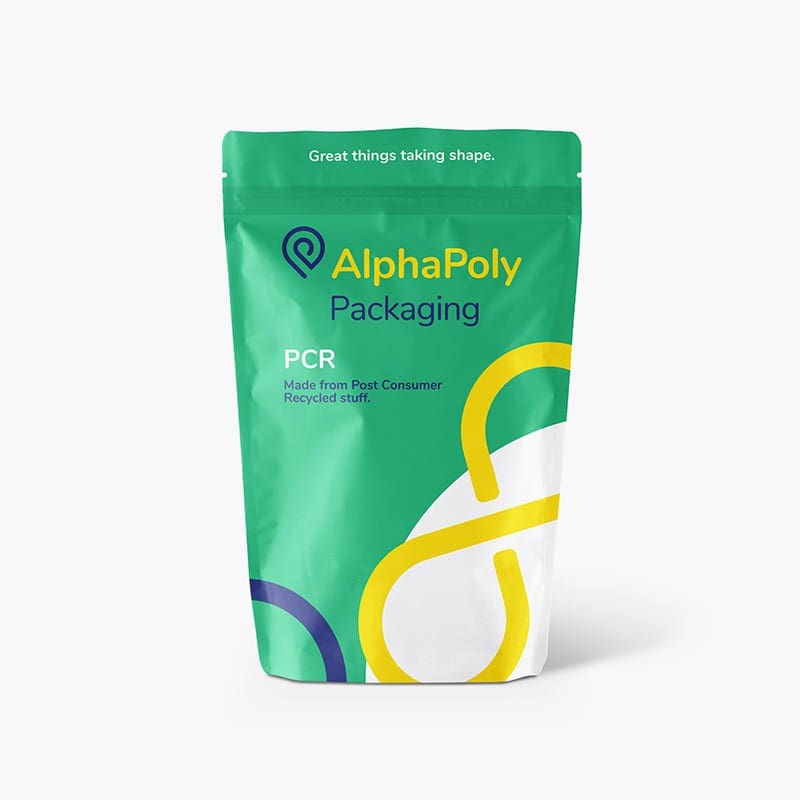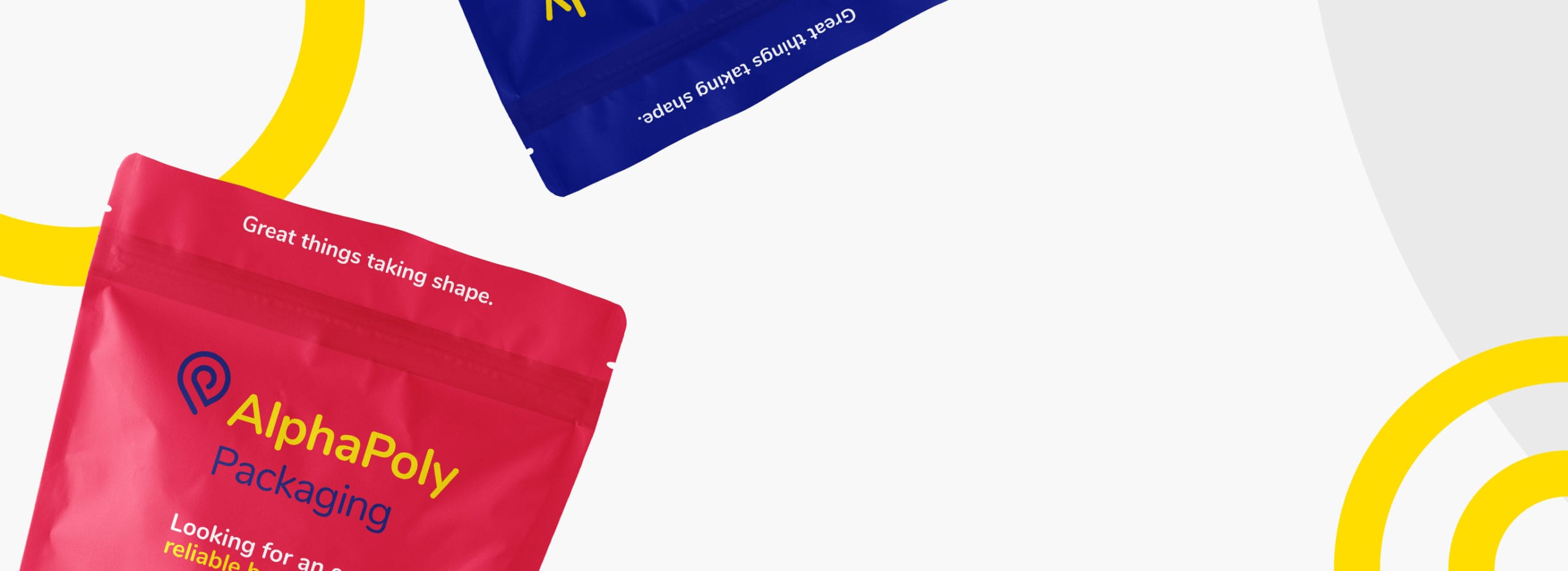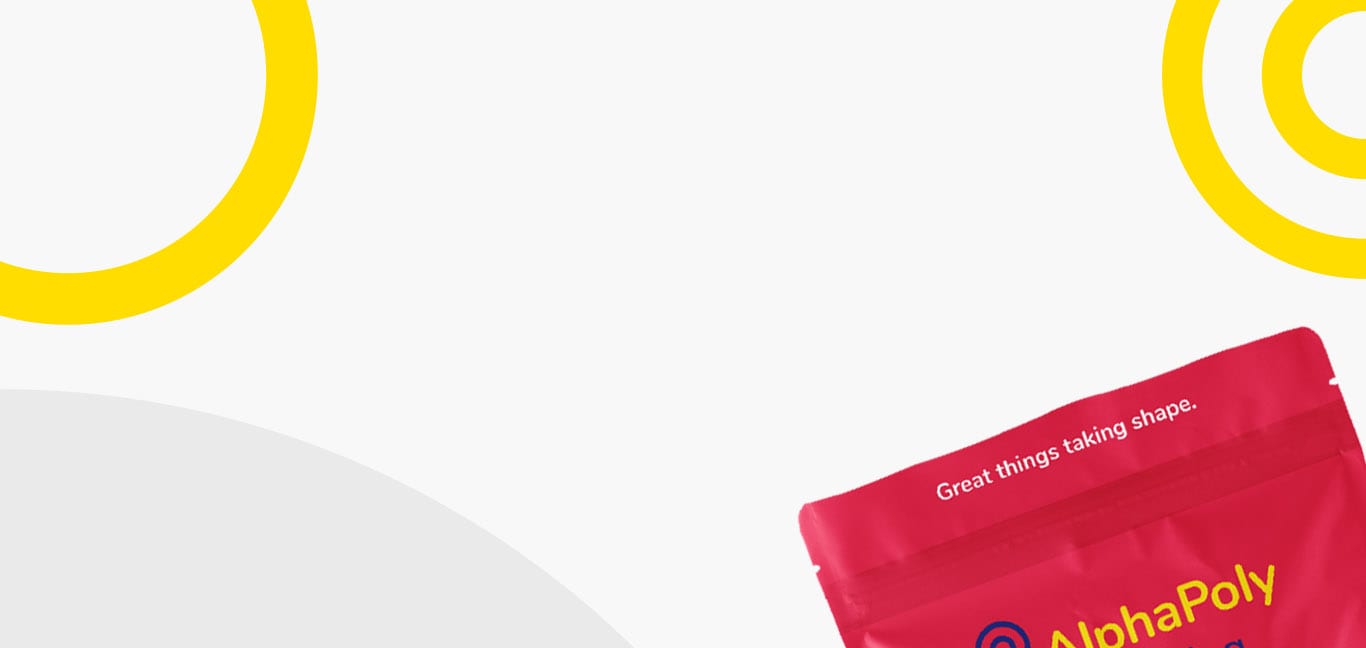
Post Consumer Recycled (PCR) Packaging
Encouraging consumers to recycle your packaging is only half of a solution to becoming more eco friendly. That recycled material needs to be used again.
AlphaPoly offers PCR (post consumer recycled) materials for pouches and rollstock which contain recycled plastics. PCR materials are made from resins that come from recycling facilities. Yes, the very same packaging and plastics that are disposed of, are used again to make new packaging. This allows your old bags become new bags, fulfilling the ultimate earth friendly challenge of reducing, reusing, and recycling.
Specs
- Uses PCR PET, and PCR PE
- Meets FDA requirements for food contact
- Reduces plastic waste in landfills
- Smaller carbon footprint, uses less energy to produce
- Cost effective, especially when petroleum-based material costs rise
FAQs
Brands want to know that PCR packaging is:
Sustainability and Environmentally Friendly: Many consumer brands like PCR packaging because it boosts their green reputation. PCR materials can help shrink a company’s carbon footprint and cut down on the use of new materials.
Safe and Compliant: It’s super important that packaging is safe for things like pet food, and human food. PCR packaging can tick all the regulatory boxes, but if you have questions, it’s best to contact us.
Offers Similar Quality and Performance: PCR packaging has got to be as good as, if not better than, the new stuff. Does it protect my products? Does it keep them fresh in the same way? Can it handle the rough and tumble aspects of transport? The answer, is yes.
Is Budget-Friendly: Money matters, and sometimes PCR materials can cost more because of all the extra processing they go through. We can help you determine if the price of switching to PCR packaging is worth it.
Customizable: The good news is yes, PCR packaging is customizable. We know that being able to make your packaging look cool and on-brand is crucial.
Read our FAQs for more answers to your common questions.
PCR packaging stands for Post-Consumer Recycled packaging. It is made from materials that have been recycled after being used by consumers. PCR packaging helps reduce waste and promotes sustainability. Traditional packaging, on the other hand, is typically made from new materials without any recycled content.
Using PCR packaging has several environmentally friendly packaging benefits. It reduces the demand for virgin plastic, which helps conserve natural resources and reduce greenhouse gas emissions. PCR packaging also diverts plastic waste from landfills, promoting a more sustainable and circular economy.
Companies that want a positive environmental impact can aid their sustainability goals by incorporating PCR packaging into their supply chain, and communicating the use of PCR packaging to consumers. This use of PCR product packaging demonstrates a corporate commitment to less waste, while promoting a circular economy.
PCR packaging is suitable for a variety of products in the personal care, beauty, household, and food and beverage industries. Alphapoly is a great match for products needing stand-up pouches, flat-bottom bags, and pinch-bottom pouches.
The demand for PCR packaging has significantly increased in recent years due to growing environmental awareness and the push for sustainable practices. Consumers are actively seeking new products with eco-friendly sustainable packaging, leading to a surge in demand.
PCR plastics play a crucial role in enhancing the sustainability of plastic packaging. The recycling process transforms used plastic products, like plastic bottles, into PCR plastic, which can be reused in various packaging applications. By using recycled materials rather than virgin materials, PCR plastic reduces the need for new raw materials, which in turn decreases the reliance on fossil fuels commonly used in the production of traditional plastic packaging. This shift not only conserves resources but also reduces carbon dioxide emissions associated with the extraction and processing of virgin materials. In packaging applications, particularly in food packaging, PCR plastic offers a durable alternative that maintains the functionality and safety of the packaging while having a positive impact on the environment.




